April Issue of The Worldview Bulletin-Pt. 1
A Conflict of Visions | Believing What We Know Isn't True
Spring greetings from The Worldview Bulletin team! In this month’s issue, Paul Copan compares two approaches to human political and social life—the “tragic” or “constrained” vision versus the “unconstrained” utopian vision, and argues that the constrained vision better reflects the Christian worldview. David Baggett makes the case that we can, in fact, believe things that we profess to be false, and that resolving these contradictions is a key to our wholeness and flourishing. Paul Gould explores how we should understand the existence of ugliness given God’s supreme beauty, while Melissa Cain Travis reviews Andrew Klavan’s new book The Truth and Beauty: How the Lives and Works of England's Greatest Poets Point the Way to a Deeper Understanding of the Words of Jesus, and points to important lessons from it on imagination, goodness, and meaning. We conclude with a roundup of noteworthy news and deals on books and resources.
Excelsior!
Christopher Reese
Editor-in-Chief
Contents
Part One
Creating Hell on Earth?
A Conflict of Visions
by Paul Copan
Two Sorts of Belief
by David Baggett
Please see the second email for Part Two of the newsletter.
Creating Hell on Earth?
A Conflict of Visions
By Paul Copan
The German poet Friedrich Hölderlin (1770-1843) wrote, “What has always made the state a hell on earth has been precisely that man has tried to make it his heaven.” This hell-creation has played itself out in various iterations during the modern era—from the nightmarish French Revolution to Nazism and Fascism to Marxism/Communism. But this pursuit of utopia by fallen human beings is an ever-present temptation—and danger.
In their own distinctive ways, economist Thomas Sowell and Harvard cognitive psychologist Steven Pinker present similar themes as they shed light on these questions. Sowell’s A Conflict of Visions: Ideological Origins of Political Struggle and Pinker’s The Blank Slate: The Modern Denial of Human Nature helpfully map out for us two key perspectives regarding the political and social landscape around us. They speak of conflicting visions regarding the public good: the “tragic” or “constrained” vision versus the “unconstrained” utopian vision—the vision of the “anointed.”
The Tragic Vision
Consider the more realistic “tragic” vision. This isn’t the view that life must be joyless and stoical. Rather, this perspective recognizes profound human limitations and patiently works with them. And the tragic vision takes seriously the flawed condition of human beings not just given their limitations but also their capacity for evil.
Because of the embeddedness of these flaws within ourselves, this vision maintains that it is unwise to try to correct all human flaws or eradicate all human evils; such an effort often creates more harm and diminishes the good. Such a vision recognizes that certain prudent trade-offs prove to be the best we finite human beings can do.
Because of this tragic vision of flawed humanity, humans—whether one individual leader or a branch of government—should not be vested with too much power. Even the most enlightened and well-intentioned human or groups of humans are subject to the same temptations and vulnerabilities as is common to humanity, and power can easily corrupt. Thus, checks and balances are needed to reduce the potential for abuse.
Furthermore, this constrained vision acknowledges that certain realities are unavoidable. For example, we can’t always—or even often—successfully negotiate with thugs and tyrants, and we can’t always easily resolve or eliminate deep problems like pandemics, famine, or crime—even if we can do some things to hold them in abeyance and keep conditions from worsening.
In addition, we must rate policies or laws by their fruits. We can appreciate good intentions, but certainly policies can bring greater harm than good. Using the language of Darwin, Sowell talks about how some ideas propounded by academics in their paneled halls should simply die because they can’t be implemented (survive) in the real world of everyday life and how human beings really function. In addition, dealing with or managing these human limitations and flaws requires patience, humility, wisdom, and recognition of our finitude.
The Utopian Vision
By contrast, the unconstrained or utopian attempts to eliminate human imperfections. This vision assumes human beings are sufficiently malleable, but one must start early when undertaking this effort to change humanity. Just start at the pre-K level and educate children into perfectibility. No ills or problems are insurmountable. We just need to put our minds and hands to it to work out the details. For the utopian, the problem isn’t with concentrated power itself, but rather power misused by wrong people or the wrong institutions being in place.
How is this resolved? We should establish the proper power structures, putting the right people into power or, if necessary, dismantling established institutions. Then we’ll be able to address the various root causes of human problems like crime and racism and alleged environmental threats.
Furthermore, the anointed are persuaded that their policies should be judged by their intentions, not the concrete results when applied to ordinary human beings in their day-to-day situations.
Why shouldn’t humans maximize their potential rather than living with limitations? In their efforts to build a better world, they ask “why not?” rather than “why?” The Fabian socialist and playwright George Bernard Shaw (1856-1950) wrote: “There is nothing that can be changed more completely than human nature when the job is taken in hand early enough.”
The morally anointed guardians of society—the “intellectuals”—often call for radical revolutions and dramatic dismantling of structures that have taken generations to build. By contrast, the “tragedians” recognize that the structures and institutions built over the generations require our constant attention and care.
These are different visions of humanity and society. In his Intellectuals and Society, Sowell notes that those who take the tragic view (who believe in free markets, checks and balances, traditional values, and so on) simply believe what they do without thinking they are inherently superior. By contrast, he notes, a common tendency of the “utopian” is that the “tragic” opposition is evil, doesn’t care about “social justice” or is seeking to despoil the planet.
A Kingdom Vision
I believe that the tragic vision is more conducive to human flourishing than the more progressive utopian vision. And for those who believe this fleeting life is all the existence we’ll ever have, they will be less likely to allow for the patient building of humanizing structures that will take generations. A certain short-term coerciveness often accompanies this utopian mindset. Change must start at an early age and be as comprehensive as possible so that all—or at least all the compliant—can profit from it within their own lifetime.
When it comes to the New Testament’s view of government, the vision is for a more limited rather than comprehensive role. Government is a God-ordained institution that, when it carries forth God’s ideals, will help create or facilitate conditions for greater human flourishing. The government is called to preserve peace or order so that citizens may live quiet and peaceable lives (1 Tim. 2:1-2). The government is also required to punish the guilty (Rom. 13:1-5; 1 Pet. 2:13-14) as well as protect the innocent (Acts 23:24-27).
God has ordained three key institutions—marriage/the family, church, and government. Thus, we could say that “marriage is made in heaven,” but that doesn’t mean that every marriage lives up to God’s ideal. Likewise, government is made in heaven, but not all governments live up to their divinely-bestowed mandates. And when they fail, they should be called to account.
What about us as followers of Christ? Even though we have a stewardship within the national and ethnic boundaries that God has placed us, our citizenship is ultimately in heaven. We can be marvelous, conscientious earthly citizens—a good thing indeed—but are we good citizens of a lasting city, whose builder and architect is God?
As I said earlier, the tragic vision isn’t a joyless, lackluster one. It takes seriously the flawed human condition and works with human finitude to establish reasonable limits without doing more harm than good. But as Jesus-followers, we don’t put our trust in government to save us. We recognize the government’s importance and the importance of political involvement as part of our calling as salt and light. But because we take the gospel seriously, we recognize more is called for than government or preserving law and order.
We embrace the story of reality—the gospel message for sin-drenched human beings who need a Savior. We need outside intervention since we cannot save ourselves. And this gospel, when received in good soil, grows and brings forth a harvest. It slowly but surely reshapes us and renders us fruitful both in this life and the life to come. The tragic vision recognizes that in this world we will have trouble, but the gospel reminds us to be of good cheer because Christ has overcome the world (John 16:33).
— Paul Copan is the Pledger Family Chair of Philosophy and Ethics at Palm Beach Atlantic University. Learn more about Paul and his work at paulcopan.com.
Two Sorts of Belief
By David Baggett
A different sort of reflection today, one as much psychological as philosophical. When I was in graduate school, a friend of mine and I in our philosophy program decided to read an epistemology book together one summer. After finishing each chapter, we discussed the questions at the end of it. One memorable question we encountered went like this: “Can we believe something we know to be false?”
On the surface of it, the answer seems obvious: Of course not! To know a proposition is false means, among other things, to believe it to be false. So if I know something is false, I can’t very well believe it (and thus think it’s true), can I? My friend was adamant that there was nothing more to say on the matter, but the question continued to nag at me a bit for some reason.
Until one day an insight occurred that enables us to answer the question affirmatively after all, at least in a sense. It was hardly a novel insight, but such as it was, it dawned on me that it’s worth thinking about what we mean by “belief.” Suppose you were to ask me if I believed something, and I honestly answered “yes,” but most of my behaviors in point of fact cast doubt on the belief in question. In such a case, my head might believe something, but my heart might not believe it—to put it colloquially.
Since we as human beings are rather complicated—relational, aesthetic, cognitive, affective, spiritual creatures—we are often rather conflicted. Cognitive dissonance, weakness of the will, conflicting intuitions, ambivalent feelings, conflicts between lower- and higher-order desires, we believe but need help with our unbelief; in all of these ways and more, we are not always consistent or paragons of inward harmony.
The other day a friend joked that I was being inconsistent about something, to which I replied by quoting Emerson: “A foolish consistency is the hobgoblin of little minds.” To which, without missing a beat, he rejoindered, “Then your mind must be huge!”
Rude! (It was a pretty good zinger, I have to admit.)
At any rate, might we know something to be false and yet still, in some sense, believe it? I suspect so, if we bear in mind this simplistic but handy “head/heart” distinction. We might intellectually recognize that something is false, yet still, in our heart, harbor suspicions it’s true—or vice versa. So, when asked if I believe something, I might truthfully respond “yes,” and might even claim to know it, when in reality I may, perhaps quite unwittingly, entertain serious doubts.
I have come to suspect that this phenomenon is not uncommon, and perhaps never more common than when dealing with beliefs that have formed in the vicinity of deep hurts from the past. Take someone who has endured abuse growing up, sexual or otherwise. The person grows up, perhaps even becomes a Christian, and asks God to heal those traumatic hurts from their past. And perhaps they have indeed experienced an appreciable amount of God’s healing grace in their lives, but there remain remnants and vestiges of hurt and (undeserved) shame.
Now suppose the person, now a young adult, has a tendency to sabotage every romantic relationship they start to pursue. If asked if he or she thinks they should hope and expect to enjoy a healthy relationship, they would likely answer yes, and believe it when they say it. With their heads, anyway. But in their heart of hearts they may harbor deep doubts, born of brokenness and shame still in need of healing and deliverance, respectively. In those hidden parts of their inner being may well lurk serious doubts about their worthiness or fitness for a healthy relationship.
When they think about the question, they would likely claim to know that, by God’s grace, they deserve a healthy love relationship. But their emotions and dispositions betray another belief, perhaps the more important belief, the one that shapes their behavior.
Such an operative dynamic is easy enough to recognize. Take a more mundane example. Suppose someone genuinely thinks he isn’t afraid to fly, but each time he’s in a plane on takeoff his white-knuckled fingers squeeze his armrest for all he’s worth. He may genuinely think he’s not afraid of flying, but his behavior says otherwise.
A better test of what we really believe than what we think are our honest professions is what our actions say. If someone claims to believe helping the poor and marginalized is important, but never does anything about it, he may be engaged in a certain amount of self-deception. If we think we trust God but find ourselves constantly filled with angst over his provision, we probably don’t trust him as much as we think we do.
And regarding those doubts we harbor because of past hurts, trauma, abuse, and the like, recognizing tensions between what we say and do is just the first step. It helps us identify some of those beliefs we may unwittingly hold, beliefs at odds with what we claim to know to be true, yet beliefs that chronically shape our actions and behaviors.
The next step is to be proactive in replacing those bad beliefs with better ones. Locating such misguided beliefs enables us better to know how to pray, and to enlist others to pray for us, that God’s healing work would continue until the job is done. It can also help us be more aware when those beliefs manifest in our dispositions to behave in ways we know to be unhealthy or unwise. And on occasion there is nothing wrong—and a lot right—with seeking the help of a professional, who can help equip us with tools and resources to achieve greater mental and spiritual health. God can and does use such folks as a means of grace in our lives.
So the takeaway should be clear: You too should read an epistemology book this summer! Just kidding.
God wants to deliver us from the hurts of our past, and from the shackles of guilt and (deserved and undeserved) shame that for too long have held us in bondage. Evangelicals are wont to talk of being “saved,” and it’s language I love, but we are all still in the process of being saved—from our sin, from our hurts, from our shame. And the sooner we find the healing and deliverance we need in the life, death, and resurrection of Jesus, the quicker we can get on with doing the work to which we’re called and living the abundant life for which we were made.
— David Baggett is Professor of Philosophy and Director of the Center for the Foundations of Ethics at Houston Baptist University. He is the author or editor of about fifteen books, most recently The Moral Argument: A History written with Jerry Walls.
Image by Gerd Altmann from Pixabay




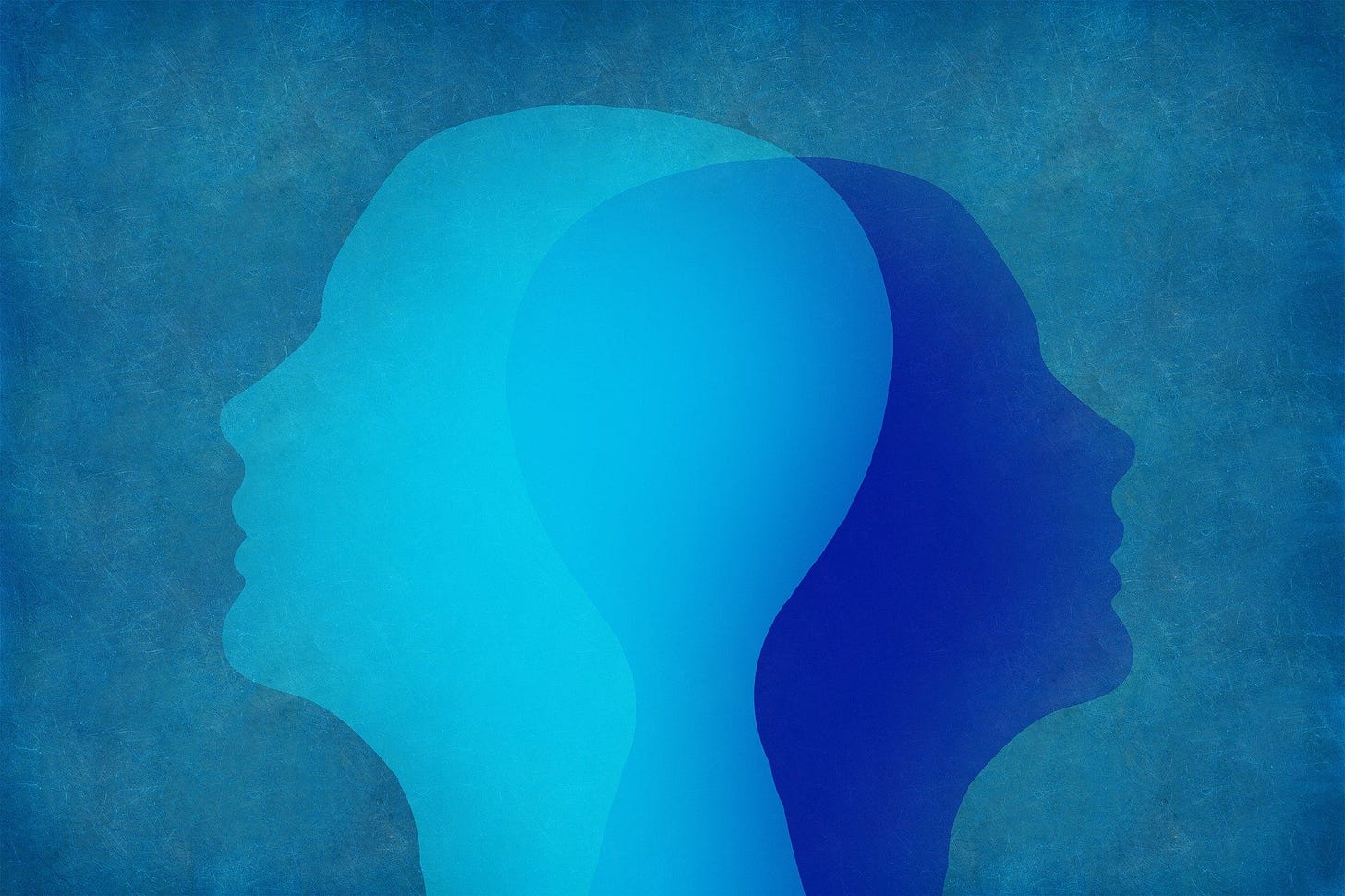


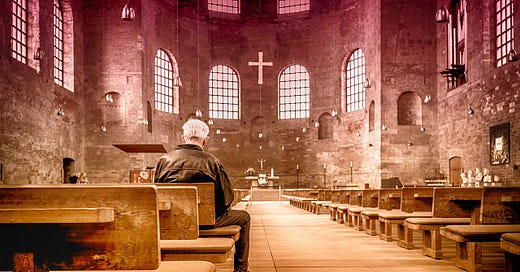

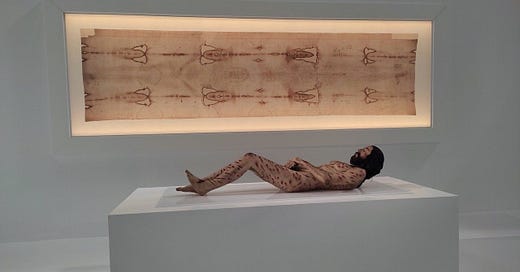





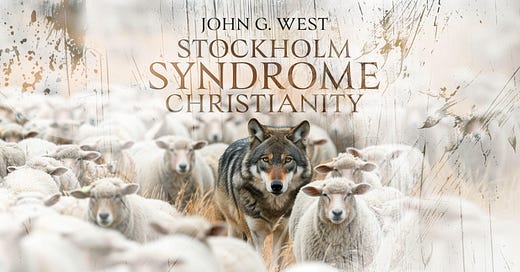

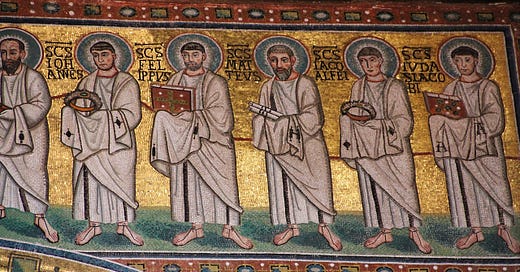

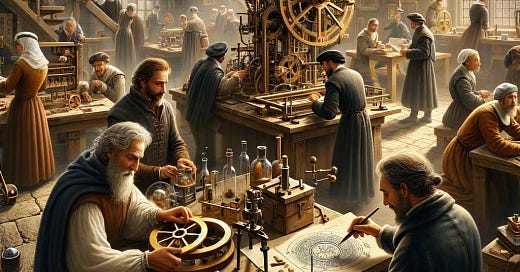



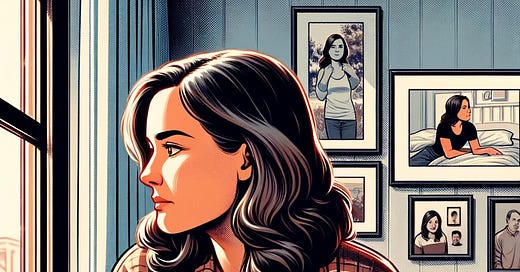

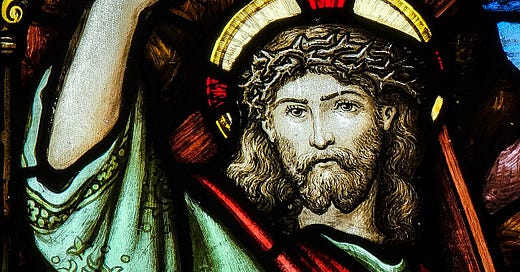

I thoroughly enjoyed these stimulating topics and the crisp prose and incisive moral analysis. The use of a gospel lens in framing the issues and evaluating the proponents of opposing viewpoints will serve as a model for irenic discourse in the meekness of wisdom that I very much need to emulate. Please keep these coming! So good and appreciated. Thank you.